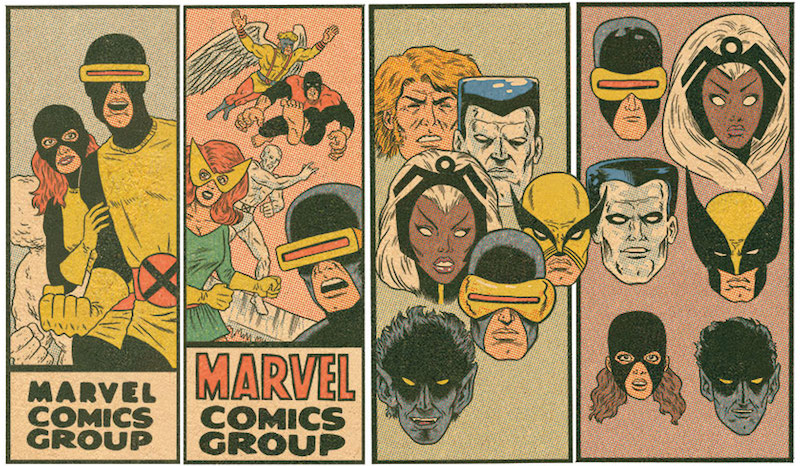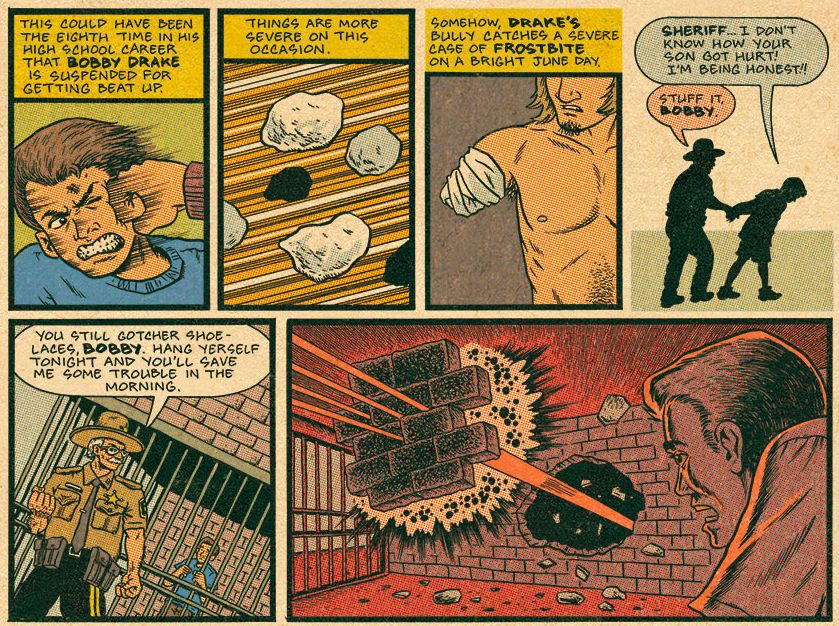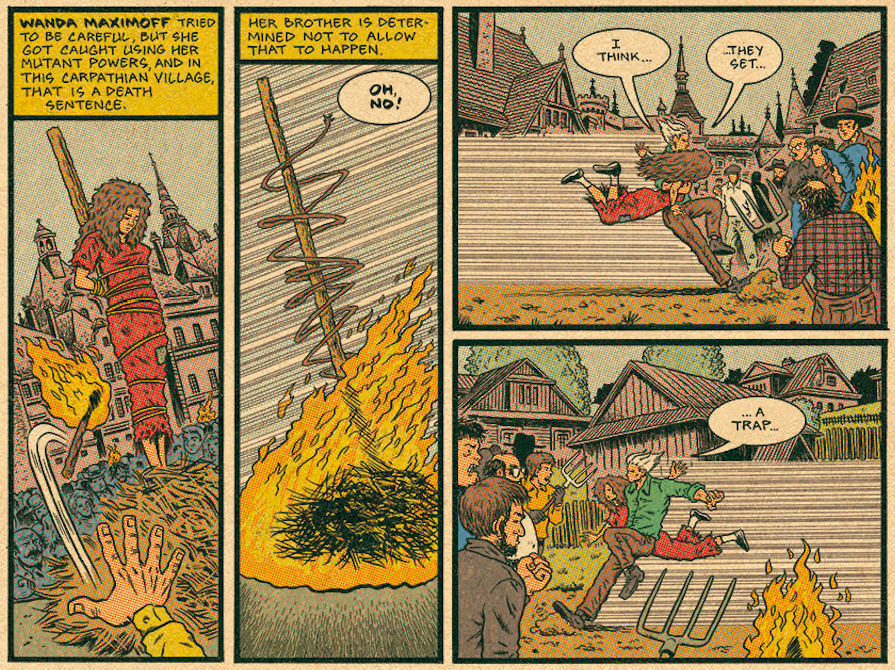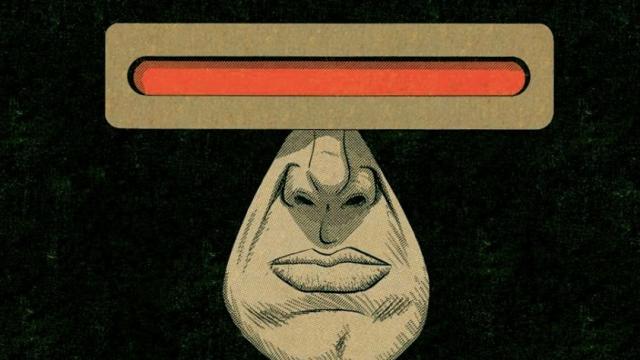Comic books are their own worst enemies. The very same narrative complexity and density that pulls some readers in and turns them into lifelong fans can also turn people off – people who see comics’ sprawling storytelling style as a barrier to entry. This is particularly true of Marvel’s X-Men.
All it takes is a couple minutes of skimming through an X-Men Wiki, or simply talking to a hardcore X-Men fan, to realise that Marvel’s mutants have one of the most collectively complicated, intricate, and contradictory backstories in comics history. What began as a humble crew of outcast teenagers with strange abilities has, over the past 54 years, grown into a wild assortment of gods, demons, and monsters who’ve helped shape the entirety of the Marvel universe.
As important and iconic as the X-Men are, their shared pasts have become increasingly difficult to string together as a single narrative, since different writers have introduced and then erased various plot lines and character arcs. While you can go back and piece together X-Men history bit by bit, the larger story is one that’s never really been able to gel on its own. Cartoonist Ed Piskor is trying to change that with X-Men: Grand Design, a massive project condensing 30 years of X-Men comics into one cohesive, linear mega-story.
I recently spoke with Piskor about his relationship to the X-Men, their fandom, and what his vision for the ideal X–story is.

Gizmodo: Talk to me about your relationship to the X-Men. How did you first come to love them?
Ed Piskor: Just in the course of making this comic I had to acknowledge something that I really didn’t even think about for a long time, and it’s that the X-Men were absolutely a constant in my young life. From my earliest memories, [they were] the first comics that I was able to read immediately after I learned how. Growing up in the ’80s I was able to pick up Classic X-Men and the regular series, month in month out. And I did that basically until I was in my young teens or whenever I had to start using my own money to figure out how to get comics. Then when [long-running writer] Chris Claremont went away, I had to make the decision, “Do I want to keep reading this?”
Around that same time there was a cartoon which was really important, and some classic video games at the arcade, and then later on the Sega Genesis [game] – all of that stuff was a big part of my life growing up, so it’s something I have a lot of reverence for.
The X-Men are notorious for having some of Marvel’s most convoluted plot lines. How have you gone about picking and choosing which of those to keep and which of those to jettison as you’ve been putting Grand Design together?
Piskor: It’s all based on kind of my own tastes. Even as a boy I had trouble with a lot of the narrative stuff that happened in X-Men comics when I was younger. I remember thinking that maybe I’d understand it better when I was older, maybe I wasn’t smart enough yet. Maybe this is why I see adults reading this comic as well. But you know, I’ve revisited that stuff a lot and some of it just doesn’t work.
But another one of my major motivations with this book is that is that I really can’t point to an excellent comic to give somebody who’s interested in the X-Men, but never really gave it a shot because because no matter what, there’s all this baggage that comes with any issue you give them. So I’m kind of personally in the business of making the things I want to exist. That was that was the motivation with the Hip-Hop Family Tree comic, and [Grand Design] is something that I could present to a person who’s curious about the X-Men, but they don’t have the time, money, or the access to read 8,000 pages of comics.

What particular parts of X-Men history did you know you wanted to include in Grand Design?
Piskor: So, the idea for the series is to try to get it all in there. Certainly, the easiest issue to put together is the third issue, because it covers the New X-Men when Colossus, Wolverine, and Storm were the new gimmick. I also wanted to get the new teams from Giant-Sized X-Men #1 up to the death of Phoenix. That’s just like the primo, Golden Age run — those 40 or 50 issues from like #94 to #137. So that was the fun stuff.
Now it’s an exercise in trying to get a lot of stuff into each issue, because not only do I have the X-Men to deal with, but I have New Mutants comics, I have X Factor right on the horizon. And that just adds to the research load to try to find an arc to make all this stuff work. So all the classic stuff is going to be here: “Days of Future Past,” the “Mutant Massacre,” “Follow the Mutants,” “X-Tinction Agenda.”
How, if at all, will Grand Design tie into Marvel’s other ongoing series? Or do you consider this a one-off?
Piskor: Having it be part of canon or something like that was never part of the discussion. I don’t know any of the current books that are happening — I just haven’t read any comics from the Big Two in, honestly, maybe 20 years. This is more of a standalone thing that I live and die by.
If you had your druthers, who’s an X-Men character that you’ve always wanted to write, and what are your ideas for them?
Piskor: I do have some ideas here and there, but whenever I have some truly amazing ideas, my instinct is to always just make my own comic. I put on my writer hat and my letterer hat and my illustration hat and I can make something that I own lock, stock, and barrel. You said, “If I had my druthers, what would I do,” and it would literally be this project. I don’t know that I have anything else to give to Marvel. If I’m going to do work for hire, I’m only going to do dream projects, and this is the thing that came to mind. Maybe something else will come up in the future but I’m full steam ahead on this.
In working on Grand Design, you’ve been looking at how the X-Men characters evolved and developed their cultural staying power. What is it about the X-Men that’s made them the icons that they are today?
Piskor: I really can’t speak for much beyond his era, but the thing about Chris Claremont… he and his creative partners were extremely generous in kind of building a new wing on the Marvel enterprise. They created a lot of fresh characters and I just don’t know if that’s done in quite the same way.
In the comics, you mean?
Piskor: It seems that many creators have a bunch of books that they’re working on for the paycheck but then will do [much more] with their Image book that they own. And I think people are a little more withholding on the corporate stuff, which I understand. I don’t know that I would create new characters for the Big Two.
But I think that those guys back in the ’70s, ’80s, and early ’90s, I think they put so much of themselves into the work and they just exhausted their imaginations trying to bring a lot to the table. And it just really stuck.

Let’s talk about fans.
Piskor: Let’s.
There’s no way you’re finishing something like Grand Design without cutting things that some fans love. Have you prepared for the backlash?
Piskor: Whenever you take over a title, the fans want certain things. They want, like, Jean Grey to die and come back. It’s an arc you have to do because the fans demand it. Creatively, I’m pretty new to this to this world of mainstream fandom, so I’ve sort of battened down the hatches and removed some of the access to me.
Are there any parts of Grand Design that you think would get fans in their feelings about stuff in a negative way?
Piskor: Well, I mean there’s always that kind of fan that’s very by the numbers. For instance, when the project was first announced and people saw the cover of issue #1 — with Charles Xavier and his little motorised wheelchair he gets in the ’90s — a lot of people were like, “He did not have that chair back in 1963, get this guy out of here, he’s a charlatan, he doesn’t know what he’s doing.”
There’s nothing I can really say to this — I’m not even interested in participating. There are definitely a couple of moments where I change things up in a way that works for me and that’s ok. We’ve all got to remember that these are all words and lines on paper.
The first issue of X-Men: Grand Design is in stores today.
This interview has been edited and condensed for clarity.
